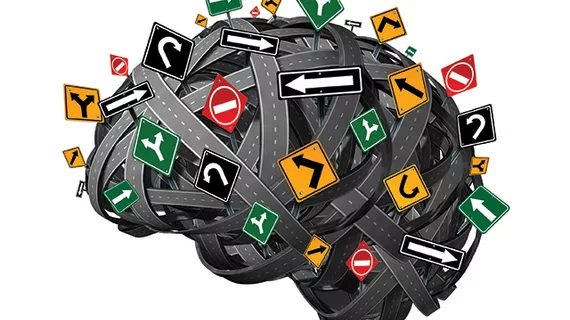The brain is a complex mechanism, but researchers from across the globe recently turned to functional MRI scans to pinpoint how different rewards stimulate a key region of one of the body’s most important organs.
Things such as food, sex and money activate similar brain locations, according to the study, published Jan. 11 in Brain and Imaging Behavior, but do so in very different ways.
For example, money engages both sides of an area of the brain known for regulating parts of the body and performing motor functions, while erotic rewards only favor a specific region on the right side. This knowledge may help researchers close a small chapter on the mysterious workings of the brain, Marie Arsalidou, a psychologist at the National Research University Higher School of Economics in Moscow, said in a release.
“Understanding the involvement of brain structures in processing different reward types can help us understand human decision-making mechanisms, from one's choice of a chocolate bar instead of a healthy breakfast, to attraction to potential mates and certain investment plans,” Arsalidou added.
The basal ganglia is a key brain region associated with all reward types. It consists of a cluster of gray mater nuclei situated at the base of the forebrain, and plays a role in assessing the potential reward that can be gained for performing a task, the study authors wrote. Until this point, however, few have understood how activity in this area changes based on the type of reward offered.
To address this, Arsalidou, along with researchers from the University of Toronto and Skolkovo Institute of Science in Technology in Moscow, performed a meta-analysis of 190 fMRI exams which analyzed different brain areas’ responses to rewards such as food, sex or money. In total, more than 5,500 people took part in the studies.
All types of rewards activate the basal ganglia in different ways, was the main finding of the analysis, according to Arsalidou.
“Food rewards favor the left hemisphere of the brain; erotic rewards favor the right lateral globus pallidus and the left caudate body,” Arsalidou said. “Money rewards engage the basal ganglia bilaterally, including its most anterior part—the nucleus accumbens.”
Based on this information, the researchers were able to create a model of how the body’s most complex organ processes rewards using the basal ganglia, as well as individual models for money, sex and food rewards.

